Carl E. Olson's Blog, page 88
July 10, 2014
Secularists show true colors in reaction to SCOTUS ruling

A demonstrator in support of the federal contraceptive mandate chants outside the U.S. Supreme Court in Washington in reaction to Hobby Lobby ruling June 30. (CNS photo/Jonathan Ernst, Reuters)
by Russell Shaw | CWR blog
The long expected showdown between faith and secularism has begun
Considered either as an ideology or as a program of action, secularism is deeply coercive. Reactions to the Supreme Court’s ruling on the Affordable Care Act’s contraceptive mandate make that abundantly clear.
Secularists typically think of themselves as champions of liberation, empowerment, and freedom of choice. Take care, though: disagree on religious grounds with something these people espouse, and they’ll be after you with fire and sword, seeking to make you fall in line. So much for liberation, empowerment, and freedom of choice.
Consider the secularist response to the June 30 decision by a five-member majority of the Supreme Court: proprietors of family-owned businesses don’t have to provide employees with health insurance coverage for abortifacient drugs the owners object to in conscience.
A “deeply dismaying decision,” the New York Times huffed about the Hobby Lobby ruling. The deeply dismayed newspaper accused Justice Alito and his four colleagues of giving owners of closely held, for-profit companies “an unprecedented right to impose their religious views on employees.”
“Nothing in the contraceptive coverage rule prevented the companies’ owners from worshiping as they choose or advocating against coverage and use of the contraceptives they don’t like,” the newspaper said. Quite so. The problem was that the rule forced people of faith to pay for something they judged morally abhorrent.
As Justice Alito pointed out, government has other ways of giving people contraceptives and abortifacients besides forcing business owners with faith-based objections to become its accomplices. Unless of course making them accomplices was itself part of the project.
The Washington Post was even more blunt in exposing its secularist premises...
July 9, 2014
Alice von Hildebrand: Reflecting on a Life of Teaching, Scholarship, and Prayer

(Left) Dietrich von Hildebrand (photo courtesy of the Dietrich von Hildebrand Legacy Project); (right) Alice von Hildebrand (CNS photo/Paul Haring)
Alice von Hildebrand: Reflecting on a Life of Teaching, Scholarship, and Prayer | Jim Graves | Catholic World Report
With her memoirs due out later this summer, the prolific writer and scholar looks back over decades of service to the Gospel and to truth.
Pope Francis recently recognized Alice von Hildebrand as a Dame Grand Cross of the Equestrian Order of St. Gregory in recognition of her lifetime of work on behalf of the Church. She is originally from Brussels, Belgium, and came to the United States in 1940, as World War II began ravaging Europe.
Unable to find employment at a Catholic college, she began a 37-year career teaching philosophy at Hunter College, a public university in New York, beginning in 1947. She married Dietrich von Hildebrand (1889-1977) in 1959, two years after the death of his first wife. Since her husband’s death in 1977, she has devoted her time and energy to promoting his work. She is a prolific writer and gifted public speaker, eloquently sharing the message of the Gospel with Catholic audiences throughout the world.
Later this summer, Mrs. von Hildebrand will release her memoirs, Alice von Hildebrand: Memoirs of a Happy Failure (Saint Benedict Press). She recently spoke to CWR.
CWR: In your memoirs, you go into detail about your 37 years of teaching at Hunter College, and the trouble you experienced in its anti-Christian environment.
Alice von Hildebrand: Yes. I was a perfectly harmless little foreign girl, teaching in a secular university, and I experienced much persecution. I began writing my experiences after I left Hunter, because I wanted my memory to be exact.
I had first applied for jobs teaching at Catholic colleges. They would not hire me because I was a woman. The same thing, incidentally, happened to Edith Stein in Germany. She couldn’t find a university job because she was a woman.
There was an opening at Hunter College. They needed someone to fill in for a professor who was going to be out for two weeks. Having never taught college before, I began on December 8, 1947. At the end of the two weeks, I thought I was going to get a pink slip, but was allowed to stay on.
I became an adjunct, but after many years of teaching I received no promotion, and no medical coverage. After 11 years I became an instructor, but at the lowest possible salary on the scale.
One day I received a terse note telling me to report to the dean’s office. I went, and found 17 other professors who spent the next two hours questioning me about my teaching. They said I was injecting my religious ideas into the classroom. When I left, I was totally exhausted. I had not experienced such exhaustion in all my years teaching.
Remarkably, I was given tenure, with nine professors voting for and eight voting against. I bumped into a friend at that time who asked me, “Do you believe in miracles?” I said, “Yes, I do.” He replied, “Well, your receiving tenure was nothing short of a miracle.”
Not everyone was happy I was tenured.
July 8, 2014
Cardinal Kasper and the Church Fathers

Left: German Cardinal Walter Kasper arrives for a meeting of cardinals in the synod hall at the Vatican Feb. 21, 2014. (CNS photo/Paul Haring) Right: 11th-century icon of Church Fathers. (Wikipedia Commons)
Cardinal Kasper and the Church Fathers | Adam G. Cooper | CWR
In seeking pastoral solutions for divorced and remarried Catholics, Kasper misrepresents the position of the Church Fathers.
In Cardinal Walter Kasper’s recent address to the extraordinary Consistory of Cardinals (February 20-21, 2014), published in English with additional material as The Gospel of the Family (New York: Paulist, 2014), he makes mention of certain early Christian sources in the hope of suggesting “a way out of the dilemma” (p. 30) presented by the question of whether and under what circumstances the Church may admit “properly disposed” (p. 30) divorced Catholics, living in a “quasi-marital liaison” (p. 31), to full sacramental communion. In light of the fact that the early Church also faced this perplexing pastoral challenge, Kasper introduces a number of witnesses who, he argues, potentially indicate a way forward for the contemporary Church toward a pastoral praxis that goes “beyond both rigorism and laxity.” (p. 31).
However, in invoking the early Christian sources, it appears that Kasper, despite acknowledging that the response of the early church Fathers was “not uniform” (p. 31), somewhat misrepresents the evidence, and does so in such a way as to advance his argument in a certain direction as though it were supported by the sources he cites. Moreover, having quoted just one author, he goes on to give the impression that the statement reflects a united and considered witness, even a consensus proceeding from certain justifications and eventually “confirmed” at a conciliar level (pp. 31 and 37). Limiting itself to the Greek sources explicitly mentioned by Kasper—Origen, Basil the Great, Gregory of Nazianzus, and the Council of Nicaea—and leaving aside the position of Augustine and later western Christian practice, it is the purpose of this report to clarify what in fact these sources actually say, not in order to discredit the cardinal or his proposals, but all the better to elucidate the real difficulties currently faced by the Church in its effort faithfully and pastorally to bring the Gospel to bear in the concrete life-situations of divorced and remarried Catholics.
Origen
Kasper mentions Origen twice (pp. 31 and 37), quoting him directly, giving as his reference Origen’s Commentary on Matthew 14:23.
Books, NOW's "Dirty 100", History, Insults, Sentimentality, Tunes, and Pet Peeves

Carl (Short) Cuts for July 8, 2014 | Carl E. Olson | Catholic World Report
• I'm making a concerted effort to keep this edition of "Carl's Cuts" quite short. Which is why I've titled it—
• Nevermind, it'll take too long to explain.
• What books are you not reading this summer? I ask because the Wall Street Journal recently ran an interesting piece, "The Summer's Most Unread Book Is..." by Jordan Ellenberg, about popular books that apparently aren't read from beginning to end, eroding or even destroying the reader's will to continue reading. Among them is one book I have read from start to finish: The Great Gatsby (and I also read Fitzgerald's final—completed—novel, Tender Is the Night, which I liked more than Gatsby). The "winner" for least read book is Capital in the Twenty-First Century by Thomas Piketty, which was published just a few months ago. I've not read it (need I say so?), but I did read Jonah Goldberg's review of it—and that was sufficient.
• Most interesting book under 150 pages I've read in a while: How (Not) To Be Secular: Reading Charles Taylor (Eerdmans, 2014), by James K. A. Smith. Funny thing: it is a guide—a commentary of sorts—to a 900-page book: Taylor's 2007 volume, A Secular Age, of which I've read short snippets. More on Smith's book in the near future.
• Speaking of summer reading, George Weigel has posted a short, but intriguing, list.
• Speaking of lists! NOW (the National Organization of [Contracepting] Women) has launched a campaign against "The Dirty 100", stating, "The 100-plus lawsuits challenging the Affordable Care Act’s contraception coverage mandate are less about legitimate religious beliefs than about the fervent desire of extremists to roll back women’s equality, including access to the full range of reproductive health care." Many of the "dirty" institutions are, of course, Catholic, including several Catholic schools and dioceses. Oh, and the Little Sisters of the Poor. Because we know what a bunch of women-hating extremists the Little Sisters of the Poor are!
• How, exactly, are these 100 institutions and groups "dirty"?
July 7, 2014
Chaldean Patriarch Fears Iraqi Christian Exodus

Left: A member of Iraqi security forces stands guard in Baghdad June 17 in front of volunteers who have joined the Iraqi army to fight militants from the radical Islamic State of Iraq and the Levant who have taken over Mosul and other cities. (CNS photo/Ahmed Saad, Reuters). Right; Archbishop Louis Sako of Baghdad, patriarch of the Chaldean Catholic Church, blesses with a crucifix as he concludes a liturgy in St. Peter's Basilica at the Vatican in this Feb. 2013 file photo. (CNS photo/Paul Haring)
Chaldean Patriarch Fears Iraqi Christian Exodus
Patriarch Louis Raphael I Sako remarks on ISIS, the future of Iraq, and the responsibility of the West
Ankawa (kath.net/ACN). The emigration of Christians from Iraq will greatly accelerate. The Head of the Chaldean Catholic Church, Patriarch Louis Raphael I Sako, expressed this opinion in an interview with the international Catholic relief organization Aid to the Church in Need on Saturday, June 28, 2014, in Ankawa near Erbil.
Aid to the Church in Need: Do you have any hope that Iraq will survive as a federal state?
Patriarch Louis Rafael I Sako: No. Maybe a symbolic unity and the name Iraq will continue to exist. But de facto there will be three independent zones with their own economies and armies.
ACN: What are the consequences of this collapse of the state for the Christians of Iraq?
Patriarch Sako: That is the question. To be honest, at the present moment we bishops are somewhat at a loss. Possibly the future lies in Kurdistan. Many Christians already live there, after all. But there are also many who live in Baghdad, and many in Basra, too, in the Shiite South. We must wait for further developments.
ACN: On Friday the Synod of the Chaldean Church in Erbil concluded. Did you decide on measures to be taken with regard to the Christian refugee crisis from territories occupied or threatened by the ISIS?
July 6, 2014
The Incarnation and Three Metaphysical Paradoxes
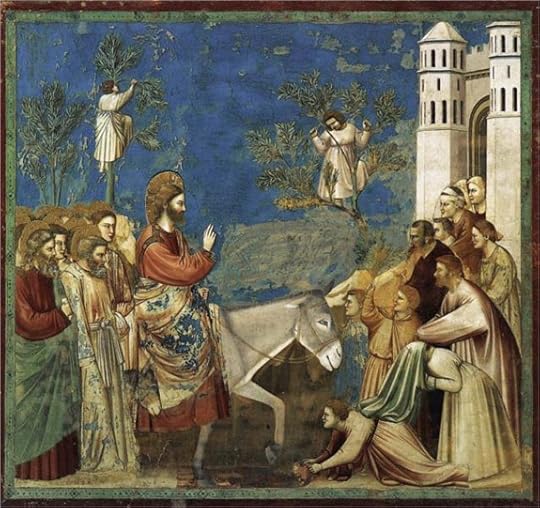
"Entry Into Jerusalem" (c.1305) by Giotto di Bondone (www.WikiArt.org.)
A Scriptural Reflection on the Readings for July 6, 2014, the Fourteenth Sunday in Ordinary Time | Carl E. Olson
Readings:
• Zech 9:9-10
• Psa 145:1-2, 8-9, 10-11, 13-14
• Rom 8:9, 11-13
• Matt 11:25-30
The literary critic Hugh Kenner, in Paradox in Chesterton (Sheed & Ward, 1947), distinguished between different types of paradox. One type is “verbal paradox”, which is aimed at persuading someone about a certain belief. A more profound sort of paradox is “metaphysical paradox”, the immediate object of which “is praise, awakened by wonder.” This paradox “springs in general from inadequacy, from the rents in linguistic and logical clothing…”
What does this mean? It means there are truths revealed to man by God that strain at the limits of human language. These mysteries of the faith cannot be known without divine grace or understood without supernatural insight. They confound the natural mind, which sees them as foolish, strange or even outrageous. It is what St. Paul had in mind, I think, when he wrote, “For the foolishness of God is wiser than human wisdom, and the weakness of God is stronger than human strength” (1 Cor 1:25).
Today’s readings contain at least three of the “metaphysical paradoxes”. Each of these is ultimately rooted in the great paradox of the Incarnation—the fact that the eternal and omnipotent Son humbled himself and entered time and history as a seemingly ordinary Jew.
The first paradox points towards to this divine humility, for it is a prophecy by Zechariah of a great king and savior whose strength is meekness and whose steed is a colt. This was surely an absurd image in the ancient Near Eastern world, for the strength of a king rested in his armies and his horses. Zechariah wrote around 520 B.C., a few years after the return from the Babylonian exile, and he sought to encourage the Jews who were trying to rebuild the temple in Jerusalem. In doing so, he wrote many great Christological prophecies, focused on this humble savior who would proclaim peace to the nations.
The second paradox is the well-known exhortation by Jesus, in today’s Gospel, to take up his yoke in order to find rest: “For I am meek and humble of heart; and you will find rest for yourselves. For my yoke is easy, and my burden light.” Those listening to Jesus understood (in contrast to so many people today) that every man serves a master of some sort; each of us is beholden to someone or something outside of ourselves. For many Jews, the Law was the yoke that they took up as their covenantal burden.
What is the yoke of Jesus? Erasmo Leiva-Merikakis, mindful of the divine humility, says that the yoke of the Son is the Incarnation. “He who was divine yoked himself to us through his humanity, and now he is inviting us to yoke ourselves to him and his divinity,” he writes in Fire of Mercy, Heart of the World (Ignatius, 1996), “When the Son’s yoke becomes ours as well, his Incarnation becomes our divinization.” The rest offered by Christ is the rest given by the Father to the children of God; it is everlasting beatitude and joy. This rest comes only through the Son, who offers us communion with the Father. But we must choose to accept it, to take up this gift of love.
Which brings us to the third paradox, found in St. Paul’s epistle to the believers in Rome. It can be summarized this way: “In order to live, you must die.” Which, of course, is essentially what Jesus said in Matthew 10: “Whoever find his life will lose it, and whoever loses his life for my sake will find it” (Matt 10:39). The more we grasp after natural life, earthly comforts and temporal security, the more elusive they become. The more we live in the flesh, the closer we are to spiritual death. The Holy Spirit, however, frees us by dwelling within us, giving power to overcome temptation and sin. This beautiful paradox means we are “awakened by wonder”—the wonder of divine life—and this is reason to praise God, the giver of life.
(This "Opening the Word" column originally appeared in the July 3, 2011, edition of Our Sunday Visitor newspaper.)
July 4, 2014
Faith, Freedom, and the Future

Faith, Freedom, and the Future | Carl E. Olson | CWR Blog
A year ago today, I wrote a short piece titled, "No Faith, No Freedom. Know Faith, Know Freedom" (July 3, 2013), that remarked, in part, about the first encyclical of Pope Francis, Lumen Fidei. I also remarked on a book I rediscovered while pawing through one of the many piles of books in my office:
Several passages caught my attention, but I'll share just a couple of them. Bypassing the context for a moment, here's the first passage:
The confidence in state action, the glorification of technology, the unlimited faith in science, the centralization of decision, and the subordination of low to so-called mass interests—all these … have helped in the West to create communities in which the individual citizens feels overwhelmed, isolated, and helpless before the anonymities of public and private bureaucracy. We are right to fear these vast distortions of tendencies already at work in our society.
It is a fine summation of the broad (and deep) problems faced today, yet it is not original. Except that it was written, not in the past few years, but over sixty years ago, in the the early 1950s. The book is Faith and Freedom, the author was Barbara Ward, and the publisher was Image; the subhead is: "A stimulating inquiry into the history and relationship of political freedom and religious faith." It is a book worth tracking down for many reasons, among them Ward's beautiful and learned writing, the historical perspective presented, and the philosophical insights, which are just as meaningful today, if not more so, than there were when the book was first published in England in 1954.
Ward has some interesting things to say about the War for Independence and the founding of the United States, but I am more interested here in her thoughts on dealing with and fighting against tyranny. In writing of the Nazi and the Soviet regimes—the former recently defeated and the latter very much alive when Faith and Freedom was published—Ward notes they are "dread reminders that in the twentieth century, the line of least resistance in politics tends toward the full apparatus of totalitarian rule. It is not wrong to fear such warnings. It is the beginning of wisdom." But, she writes, fear is not enough; it is "poor counsellor because it is essentially negative." Those who are guided by fear alone will find themselves flailing about defensively and ineffectively." What is necessary, she argues, is "a positive goal and a persistent aim." Man lives by a vision of the future; the question is: what sort of vision? The twentieth century, Ward said, was a century in which the nightmare of totalitarianism challenged the proper vision and "good dreams" of the Western world.
Part of Ward's argument (drawing upon Christopher Dawson, Jacques Maritain, and others), is that a culture build upon the Christian Faith led to the many remarkable achievements of the past couple of centuries. But as man conquered nature and mastered it, he began to believe his press clippings. As his material powers grew, his spiritual vision diminished. One paradox is that this movement from assured mastery based on faith and reason has led, by crooked but fairly clear lines, to an assured questioning of reason and a confident rejection of faith. As both are undermined, in ways obvious and subtle, man is unmoored from both the past and the future:
Man is lonely. He is not self-sufficient. He rebels against the meaninglessness of life. … He needs to feel himself part of a wider whole and he has unassuageable powers of dedication and devotion which must fine expression in worship and service. If, therefore, there is no other outlet for these powers, then the community in which he lives, the tribe, the state, Caesar, the dictator, becomes the natural and inevitable objects of his religious zeal. Religion is not abolished by the "abolition" of God; the religion of Caesar takes its place. And since, for a few men, the need to worship is satisfied in hubris, in the worship of the self, the multitudes who look for a god can nearly always be certain of finding a willing candidate.
She then writes of "the hunger for godlike leadership" and observes that "a merging of the self in the security of the whole becomes irresistible." When religious faith weakens and vanishes, "all the energies of the soul are poured into the one channel of political faith." The timelessness of Ward's observations are, I trust, obvious.
What can be done? More specifically, who has the ability to stand up against a State that oversteps its bounds and becomes, in the words of Benedict XVI, a State "which would provide everything, absorbing everything into itself"? The lone citizen is incapable to doing so. "He needs counter-institutions, above all the counter-institution of the Church, which of all organized bodies alone can look Caesar in the face and claim a higher loyalty." Yet faith must never be a mere tool or a safeguard.
Faith is not a matter of convenience or even—save indirectly—a matter of sociology. It is a question of conviction and dedication and both spring from one source only—from the belief in God as a fact, as the supreme Fact of existence. Faith will not be recovered in the West because people believe it is useful. It will return only when they find that is it true.
Then, yesterday, I re-read a Fourth of July essay—"Do We Deserve To Be Free?"—written in 2006 by Fr. James Schall, SJ, for Ignatius Insight. It is worth quoting at length, for it is just as timely today as it was eight years ago:
10 Things You Should Know About the American Founding
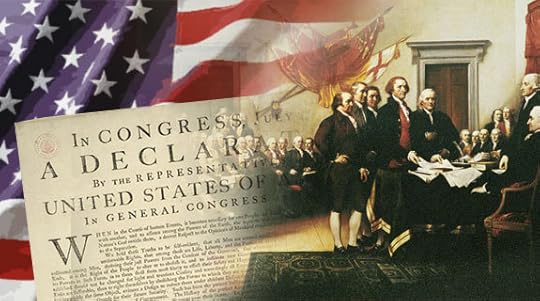
10 Things You Should Know About the American Founding | Dr. Bradley J. Birzer | CWR
On this Fourth of July, 238 years after Congress declared independence from the British Empire through the Declaration of Independence, it’s well worth reminding ourselves of a number of things about the Founding era.
In 1776, numerous individuals, families, committees, congregations, localities, and states had already proclaimed their independence, and almost no remaining imperial structure could continue to operate with any legitimacy in what would very soon become 13 states. By the very beginning of July of 1776, it became clear that members of Congress would have to catch up quickly to the more activist localities if they hoped to rein in the movement of independence before it got out of hand and splintered from lack of central direction and a coherent philosophy.
While the passage of the Declaration came on July 4, the members of the Second Continental Congress did not sign the venerable document until August 2.
Here are 10 facts about the American founding that are worth knowing and contemplating as our country celebrates its independence on the Fourth of July.
1. At the time of the passage and signing of the Declaration, roughly 2.15 million persons lived in the 13 colonies. Of those not enslaved, the vast majority was of Anglo-Saxon-Celtic descent and nearly 100 percent were Protestant. The “fierce spirit of liberty is stronger in the English Colonies probably than in any other people on the earth. … Religion, always a principle of energy, in this new people is no way worn out or impaired,” Edmund Burke stated publically in 1775. “The people are Protestants; and of that kind which is most adverse to all implicit submission of mind and opinion.”
2. Within Parliament and English governance, a debate had raged regarding the nature of the British Empire itself. ...
July 3, 2014
Talking About Nature in an Unnatural Age

(Photo: © eelnosiva - Fotolia.com)
Talking About Nature in an Unnatural Age | James Kalb | CWR blog
"Naturam expellas furca, tamen usque recurret"
Last week I attended a talk by Robert Reilly on his new book,Making Gay Okay: How Rationalizing Gay Behavior is Changing Everything (Ignatius Press, 2014).
The talk, at the offices of First Things in New York, started with Aristotle’s Politics and the idea of natural functioning. If you follow human nature, the idea seemed to be, politics begins with the family, the family with the bond between man and woman. Such a view evidently disfavors homosexual behavior, and denying that verdict in the interests of sexual freedom means denying human nature as the basis of politics. That’s a problem, since (among other things) it does away with limits. Politics becomes a technology like any other, to be used by whoever controls it for whatever purposes he happens to have.
So Reilly is among those who point out the totalitarian implications of today’s progressivism. As he puts it, making gay okay changes everything—and not in a way any sane person would want.
But what will this kind of argument get us in the world as it is today?
July 2, 2014
Islam and Christianity, a peaceful coexistence?
Islam and Christianity, a peaceful coexistence?
View this email in your browser
"Militants' advance threatens Christians in Iraq"
"Nigerian villagers killed in Boko Haram church attack"
"Sudanese Christian woman fears for her life"
"Iraqi Christians Flee Homes In Brutal Conflict"
As headlines like the ones above become more and more common, we must again face the question of whether or not the Islamic vision of the world, as proclaimed in the Quran, allows for a peaceful coexistence between Islam and Christianity.
Writing for Catholic World Report , Michael Coren, examines this question in his article below, "The Quran and Christianity."
For a deeper exploration of this question and related issues,
scroll down further to browse our related titles
and save 20% on these select titles with the code JULY01 for a limited time* only.
The Quran and Christianity
Islam's holy book is filled with intolerant, aggressive language that calls directly for violence against Christians
Michael Coren
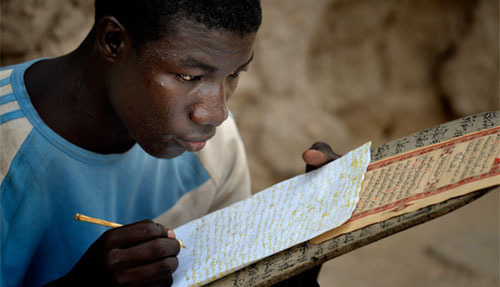
A boy copies Quranic verses in a Muslim school in June in Timbuktu, the northern Mali city that was seized by Islamist fighters in 2012 and then liberated by French and Malian soldiers in early 2013. (CNS photo/Paul Jeffrey)
Islam’s persecution of Christianity has reached a grotesque crescendo in the past few months. Nigeria, Pakistan, Sudan, Egypt—the list goes on and horribly on. There is much that can be said—and I will not refrain from saying it—but if there is to be honest debate and discussion about the issue we have to admit what the Quran, the holy text of Islam, states about Muslim attitudes toward Christians...continue reading
Related Titles
Save 20%* with the code JULY01 for a limited time only!
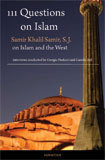
111 Questions on Islam
Samir Khalil Samir
$16.95
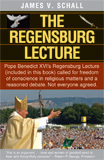
The Regensburg Lecture
Pope Benedict XVI
and Fr. James Schall
$20.00
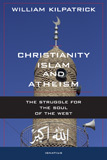
Christianity, Islam
and Atheism
William Kilpatrick
$24.95
eBook also available.
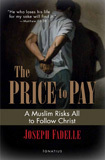
The Price to Pay
Joseph Fadelle
$19.95
eBook also available.
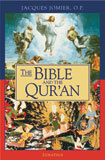
The Bible
and the Qur'an
Jacques Jomier
$12.95
audio book on CD
also available.
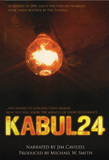
Kabul 24
DVD
$16.95
*This offer is valid online only from July 1, 2014 until July 8, 2014 midnight EST.

Share

Tweet

Forward


Copyright © 2014 Ignatius Press, All rights reserved.
Carl E. Olson's Blog
- Carl E. Olson's profile
- 20 followers



